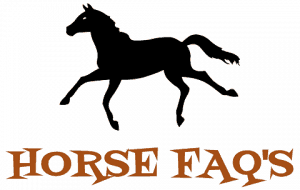Horses are majestic creatures that have been a part of human history for centuries. From being used as transportation and work animals to being trained for competitive sports, horses have always captivated our hearts.
However, behind their beauty and grace lies a critical aspect that is often overlooked – their weight. Knowing your horse’s weight is essential for maintaining their overall health and well-being, and it can have a significant impact on their performance and longevity.
Horse weight is like a compass that guides us towards the right direction for their care and management. It is a vital indicator of their health status, and it can reveal a lot about their body condition, nutrition, and fitness level.
In this article, we will explore the importance of horse weight, the methods used for weighing horses, and how maintaining an ideal weight can impact their health and success as an equine athlete. Whether you are a horse owner, trainer, or veterinarian, understanding the significance of horse weight is crucial for providing the best care possible for these magnificent animals.
Importance of Horse Weight
The importance of horse weight lies in its correlation with overall health and risk of serious health issues. A horse’s weight can be influenced by genetics, environment, age, body condition, and diet/activity level, and can be assessed through methods such as livestock scales, weight tapes, online calculators, and eyeballing.
Knowing a horse’s weight is crucial for feeding strategies, medication dosing, and determining a safe weight to carry/pull. Additionally, maintaining ideal weight is important for long-term health and success as an equine athlete.
Weight also affects performance, and an overweight horse may experience decreased stamina and mobility. Weight loss strategies for overweight horses may include increasing exercise, feeding high-fiber, low-calorie diets, and reducing sugary and starchy feeds.
It is important for horse owners to regularly monitor their horse’s weight and condition for optimal health and to seek professional help in determining the ideal weight range and devising an action plan.
In summary, knowing a horse’s weight is a crucial aspect of responsible horse ownership and is important for maintaining overall health and performance.
Methods for Weighing Horses
Various techniques are employed to determine the weight of equine animals. These include the use of livestock scales, weight tapes, online calculators, and visual estimation. Each method has its own advantages and disadvantages, affecting weighing accuracy and the ease of use. Livestock scales are the most accurate method, but they require access to specialized equipment and can be time-consuming. Weight tapes and online calculators are more convenient and accessible, but they are less accurate and can be affected by factors such as the horse’s body shape and the tightness of the tape. Visual estimation, while quick and easy, is the least accurate and can vary greatly depending on the person’s experience and skill.
To illustrate the weighing accuracy and challenges in estimating weight, the following table compares the actual weight of a horse to the estimated weight using different methods:
| Method | Actual Weight (lbs) | Estimated Weight (lbs) | Difference (lbs) |
|---|---|---|---|
| Livestock Scale | 1200 | 1200 | 0 |
| Weight Tape | 1200 | 1300 | +100 |
| Online Calculator | 1200 | 1180 | -20 |
| Visual Estimation | 1200 | 1000 | -200 |
As shown in the table, the livestock scale provides the most accurate weight measurement, with no difference between the actual and estimated weight. The weight tape and online calculator both overestimate the weight, while visual estimation greatly underestimates it. These discrepancies highlight the challenges in accurately estimating horse weight and the importance of using the most appropriate and reliable method for each situation.
Maintaining Ideal Weight and Health
Assessing and maintaining an equine athlete’s body condition score is crucial for optimizing their long-term performance and success, as well as preventing potential health issues.
A horse’s body condition score (BCS) is assessed on a scale of 1-9, with 1 being emaciated and 9 being obese. Horses with a BCS of 4-6 are considered to be in ideal weight range, with a proportionate distribution of fat across their body.
Maintaining a balanced nutrition and exercise routine is essential for maintaining a horse’s ideal weight and BCS. A horse’s diet should consist of a balanced proportion of protein, carbohydrates, and fats, based on their specific needs. Feeding strategies should take into account the horse’s activity level, age, and breed.
Overfeeding can lead to obesity, while underfeeding can result in malnourishment and poor health. Regular exercise, such as riding or turnout, can help horses maintain their ideal weight and improve their overall health.
Veterinarians and equine nutritionists can provide guidance and support in developing an appropriate diet and exercise plan for each horse.
Frequently Asked Questions
Can a horse’s weight fluctuate based on the season or time of year?
Seasonal weight changes in horses can occur due to factors such as changes in activity level and grazing availability. Management strategies should be adjusted to ensure horses maintain a healthy weight range throughout the year.
Is it possible for a horse to be too heavy for their breed or activity level?
Weight management is crucial for equine health and athletic performance. While a horse’s breed may influence its ideal weight range, exceeding it can lead to health problems. Proper weight management ensures breed suitability and long-term well-being.
How often should a horse’s weight be monitored and assessed?
Frequency recommendation for monitoring a horse’s weight varies based on age, breed, and activity level. Methods comparison shows scales and weight tapes to be most accurate, with eyeballing least accurate. Regular monitoring is crucial for optimal health and performance.
Can a horse’s weight impact their behavior and temperament?
Did you know a horse’s weight can impact their behavior and temperament? Behavioral effects and nutrition impact can be caused by improper weight management. Accurately monitoring weight is essential for optimal horse health.
Are there any common misconceptions about horse weight and health?
Common misconceptions and weight myths about horse weight and health include the belief that all horses should weigh the same, that overweight horses are healthy, and that eyeballing is an accurate method of determining weight. Accurate weight measurement is crucial for optimal health.

